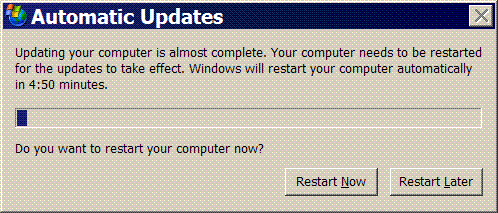I was skimming Vincent Maraia's (he has a blog!) book, The Build Master: Microsoft's Software Configuration Management Best Practices, and ran across the following quote:
Thus, if you want to learn one languauge that will cover many tools and technologies no matter what platform you are working on, that language is XML.
On the surface, this is a true statement. Since XML's introduction it's shown up virtually everywhere: XML has been used for everything from configuration files to RPC protocols. Better still, all these XML documents have the same understandable syntax and can be parsed by the same, standard tools (which exist virtually everywhere). If you want to work with XML files, chances are your favorite text editor has built in XML support; If you want something more structured, Excel has a powerful XML import capability, as do most databases. However, as nice as all this is, it glosses over one fundamental fact: XML, by itself, doesn't mean anything.
Saying that a document is in XML is basically the same as saying it's in CSV: it implies the format that contains the data, but it doesn't imply anything about the data itself. There are still a bunch of unresolved questions: What tags are supported? How are attributes parsed? What do the tags actually mean? These are the types of questions you'll find yourself asking about five seconds after receiving an XML document in a new format. While some of these questions can be answered by a Schema or DTD, the last question, the key question, isn't addressed by a schema at all. As anybody who has had to reverse engineeer an otherwise unknown XML document can tell you: even if you know a document is in XML, the things you really care about are still left unspecified.
So, XML isn't really the 'language' Mr. Maraia states it to be, which is why his comment is so optimistic. While it is true that XML is useful and universal, you'll also need to learn schemas for the documents you'll be working with; That's where the bulk of the work will be. (Syntax is generally an easy thing to learn, and developing syntax processing code is a well understood branch of computer science.) So, while you should learn XML, if learning XML itself is the kind of decision you have to mull over, you probably aren't prepared for steps you'll be taking immediately after learning XML. (This is particularly true if you're using XML to configure build tools, as in Maraia's book. If you're in that role and are having trouble with XML, you should just quit now.)
Erik Naggum, of comp.lang.lisp fame, summed this up quite nicely:
Structure is nothing if it is all you got. Skeletons spook people if they try to walk around on their own. I really wonder why XML does not.
